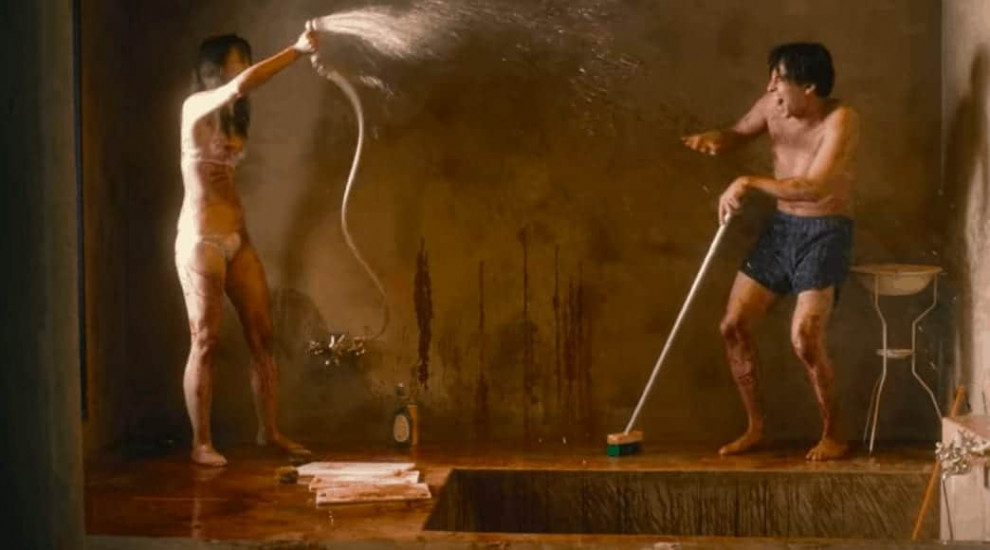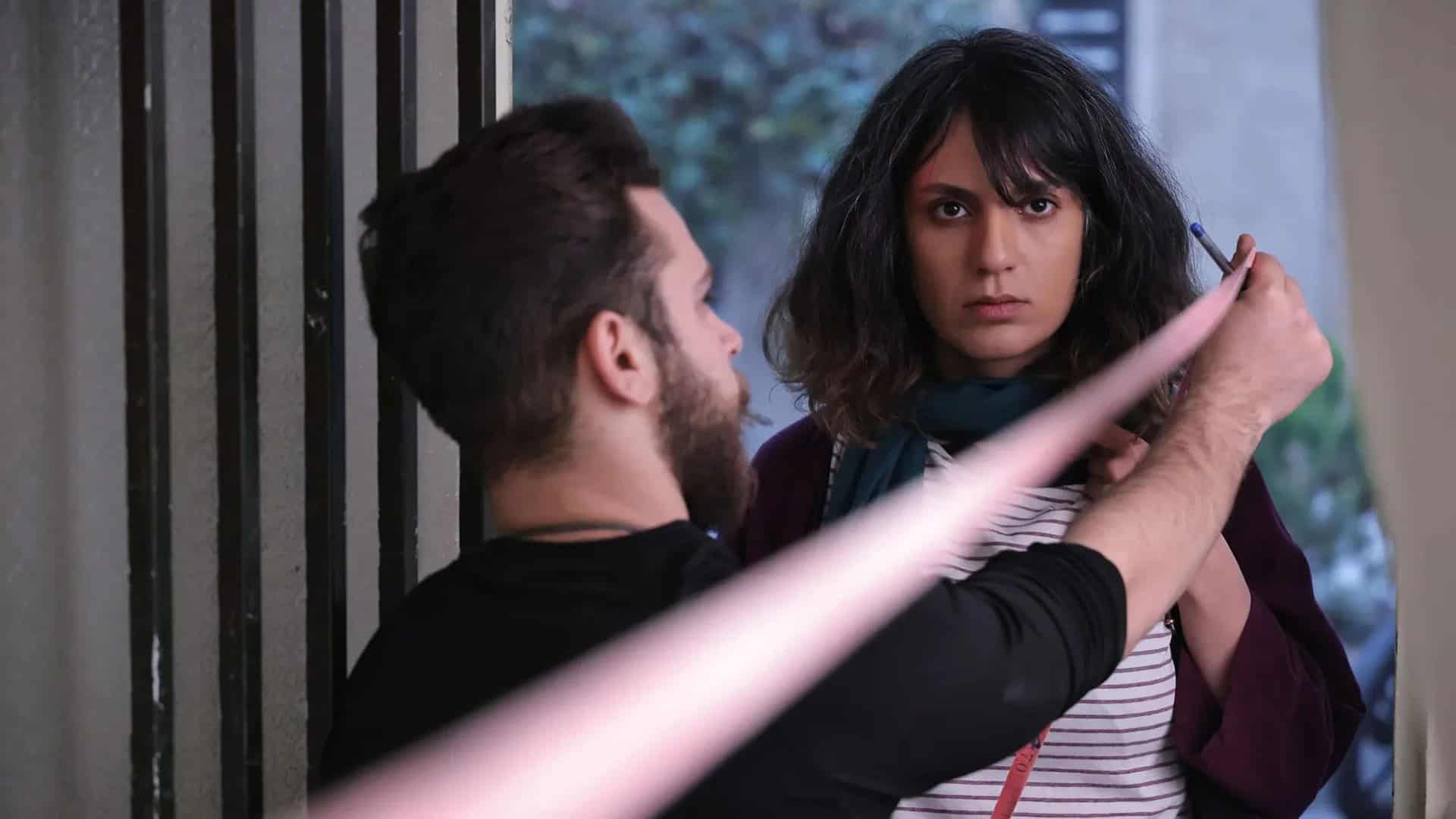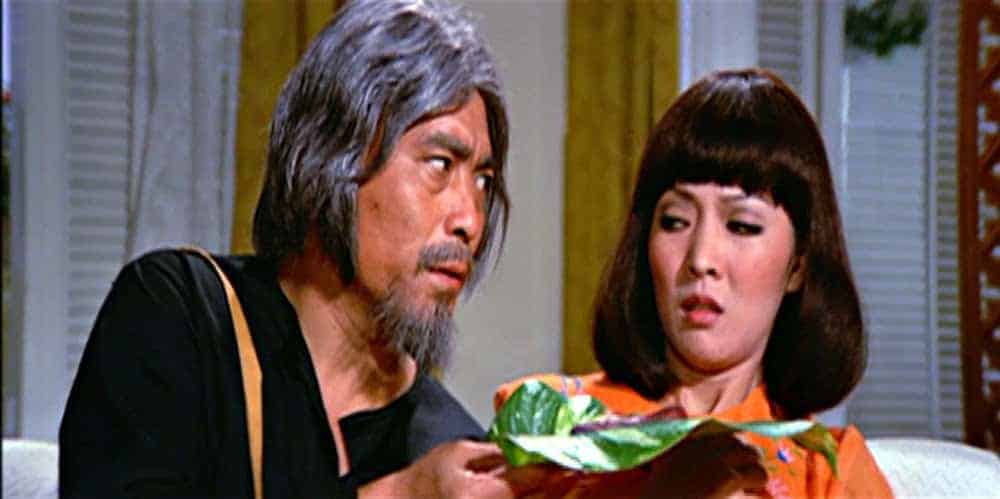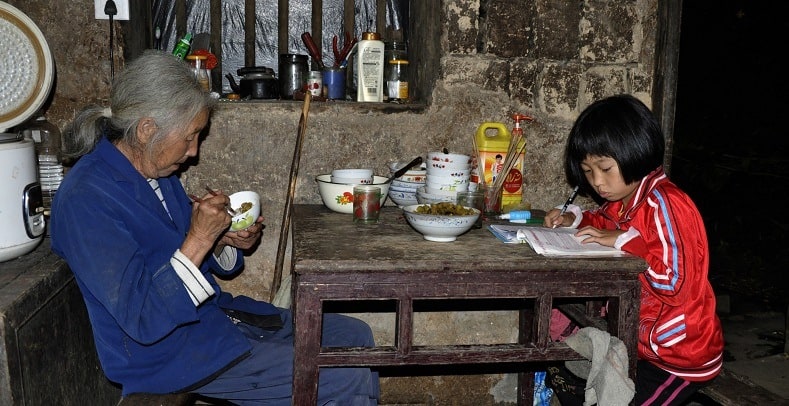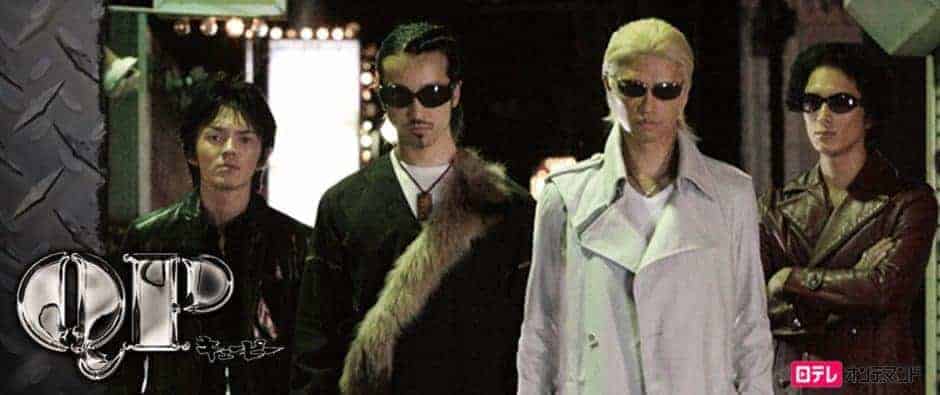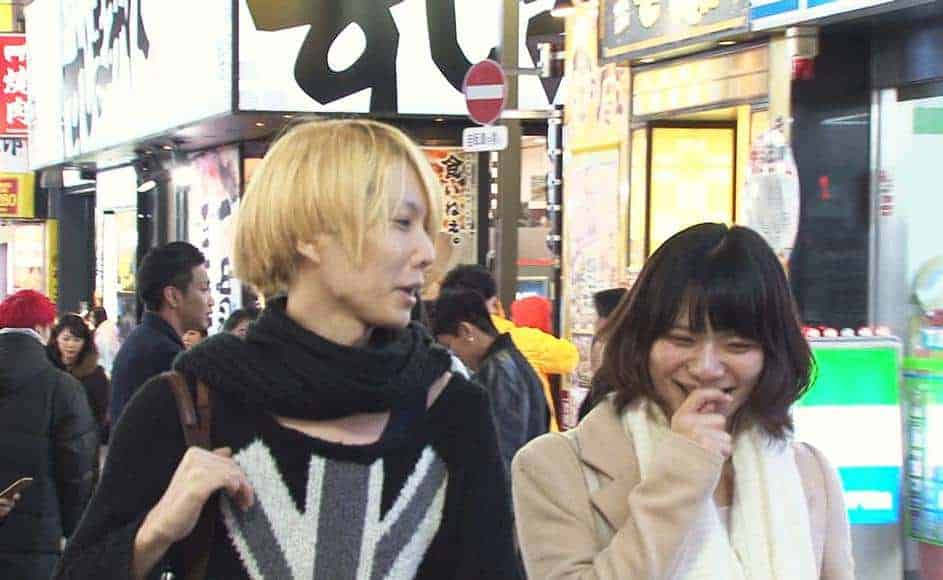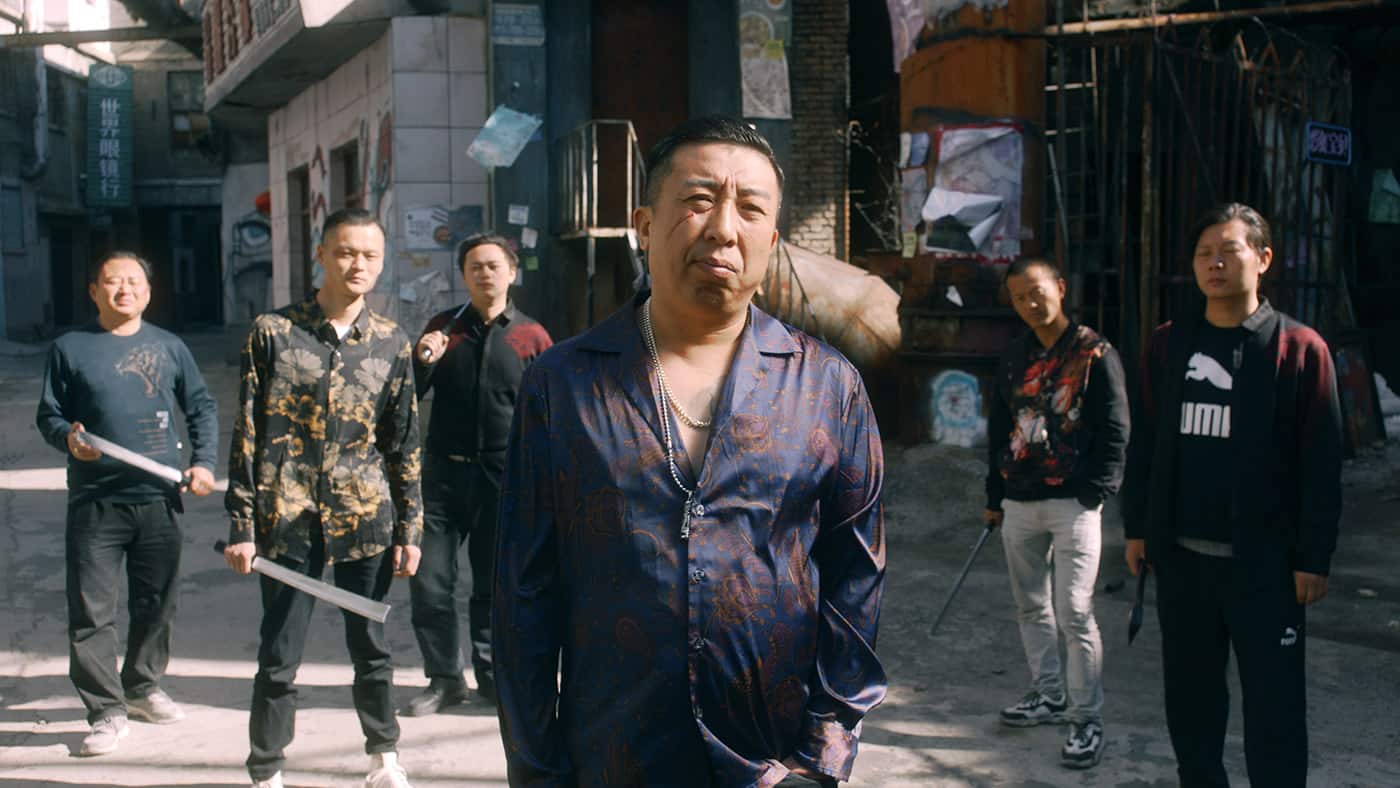Sion Sono produced his feature film “The Forest of Love” for Netflix, in 2019. Now, the streaming platform is releasing the miniseries that was part of the initial project with the director. In seven episodes of between 32 and 51 minutes, the material now receives an extension that adds greater uniformity and harmony to the whole concept. It could be argued that it is a bit irritating why a compressed form appeared, when the series is obviously the original – probably marketing reasons play an important role here.
Sono was inspired by a real criminal case. The viewer is informed about this at the beginning of each episode. This goes through your mind over and over again during the course of the series and gives an additional level to what you see. Each episode is based on a similar structure, which divides the plot into three time spans. 1993 is usually at the beginning. Three friends, who make a short stop in the forest from their car journey, find a corpse and report the find to the police. 1985 describes the school days of the two female protagonists Taeko and Mitsuko, who find themselves in the present, 1995. Here, things finally get completely out of hand.
1995: Shin is a young, seemingly inhibited young man, who is new in Tokyo. When he performs his self-written song in a public square, Jay and his friend speak to him. They want to make a film to win the first prize at the PIA Film Festival and thus start a career as famous directors. But they still have no idea what the film should be about. But soon, the three of them are offered an ideal topic. Taeko is a young punk girl and old friend of Jay. Together they visit their former school friend Mitsuko.

1985: Mitsuko and Taeko attend a girls' school. Taeko is the director of a play in which Mitsuko plays Juliet and another student Romeo. Mitsuko and Taeko are in love with Romeo. Both of them carry back a deep trauma from Romeo's violent death. Since then, Mitsuko has been living as a virgin, she doesn't want to get involved with a man. Taeko, on the contrary, has become a “slut”, as she says herself. Their lives are supposed to get closer again when another character comes into play. Joe Murata, a Harvard graduate and successful film producer, according to him. He flirts with Mitsuko. Taeko is alarmed, because a few years ago he also started to stalk her, her sister, and at the same time, her mother.
Promptly, the three friends have their film subject. Murata offers everything a filmmaker could wish for. Charm, assertiveness, success with women and most likely he is also the serial killer who is wanted all over the country. For the viewer also, this character is both fascinating and repulsive. It's mainly because of Kippei Shiina's acting abilities that this character is so convincing. In comparison to the feature film, the series gives much more space to his development. The same is also true for the other characters. The performance of the other actors such as Shinnosuke Mitsushima as the introvert Shin, Kyoko Hinami as the though Taeko and Eri Kamataki as the seemingly innocent Mitsuko grow together into a uniform and harmonious ensemble.
By creating the character of Murata, Sono brings his criticism of Japanese society to bear. Murata is a berserker, someone who has no respect for anyone, he is rude, loud and boastful. He embodies every conceivable vices. Nevertheless, people submit to him. It is this submissiveness that can be seen as the main theme of “The Forest of Love – Deep Cut”. Sono shows how far it can go when a person does not resist, when a person blindly clings to hierarchies and status.

The series is a kind of cross-section of his earlier work. He combines motivic elements that he already likes to use in several of his works: suicide, sexual fetish, schoolgirls in uniform and religious cults. Sono stages love as something consuming and humiliating. First and foremost, it means power. A power that can be abused in the wrong hands. Sono is interested in the concept of innocence and virginity in a sexual context. To this end, he repeatedly stages homoerotic moments between the young women, watches Mitsuko in her phantasms. In addition to lesbian love scenes captured in romantic music, there is also more room in the series than in the film, for example, for conversations about the fetish of older men for young girls (in uniform).
“The Forest of Love – Deep Cut” is a punk opera that bears Sono's signature in equal measure in content and form. The cinematography of Sohei Tanikawa mixes handheld camera aesthetics with carefully composed panoramic images. As Sono's long-time partner, Tanikawa ties in with their joint films such as “Love Exposure” and “Guilty of Romance”, to which “The Forest of Love – Deep Cut” is like another piece of the puzzle of a higher-level love-hate epic. The series also owes its stirring dynamic to the fast editing, which is the work of Takayuki Masuda. The viewer is pulled into the plot, so that it is difficult to keep the necessary distance. The borders between fiction and reality become increasingly blurred, as it is the case for the protagonists of the series and the self-made film itself. Compared to the feature, the “film within the film” is more present in the series. The shots for the self-made movie are more extensive, the preparations for the shooting are shown, at the beginning the crew is introduced , which then leaves the project.

Even in the scenes of great brutality, a poetic level can be found. The violence is so exaggerated and overstated that it serves the purpose of parody and not glorification. By the way, in the series it comes less suddenly than in the movie, so that the preceding plot prepares the viewer for it. What's one of the strengths of the series compared to the feature film is the more accentuated parallel that is made between the loud, obtrusive character of Murata and the alleged follower Shin. Murata turns out to be a wannabe crook. He likes it when others put his fantasies into action. Shin on the other hand is the bitter, psychotic serial killer from the very beginning, who does exactly what he wants. This dialectic is missing in the movie, yet it's an essential level of the material.
In “The Forest of Love – Deep Cut” Sion Sono again takes an uncompromising approach to provoke his audience. The series comes up with several unexpected twists and cleverly counteracts expectations. Who exactly is the victim and who is the perpetrator remains unsolved. It is an unforgettable experience for anyone who is susceptible to the absurd and surrealistic – a flood of images and emotions that one wishes to see on the big screen.


